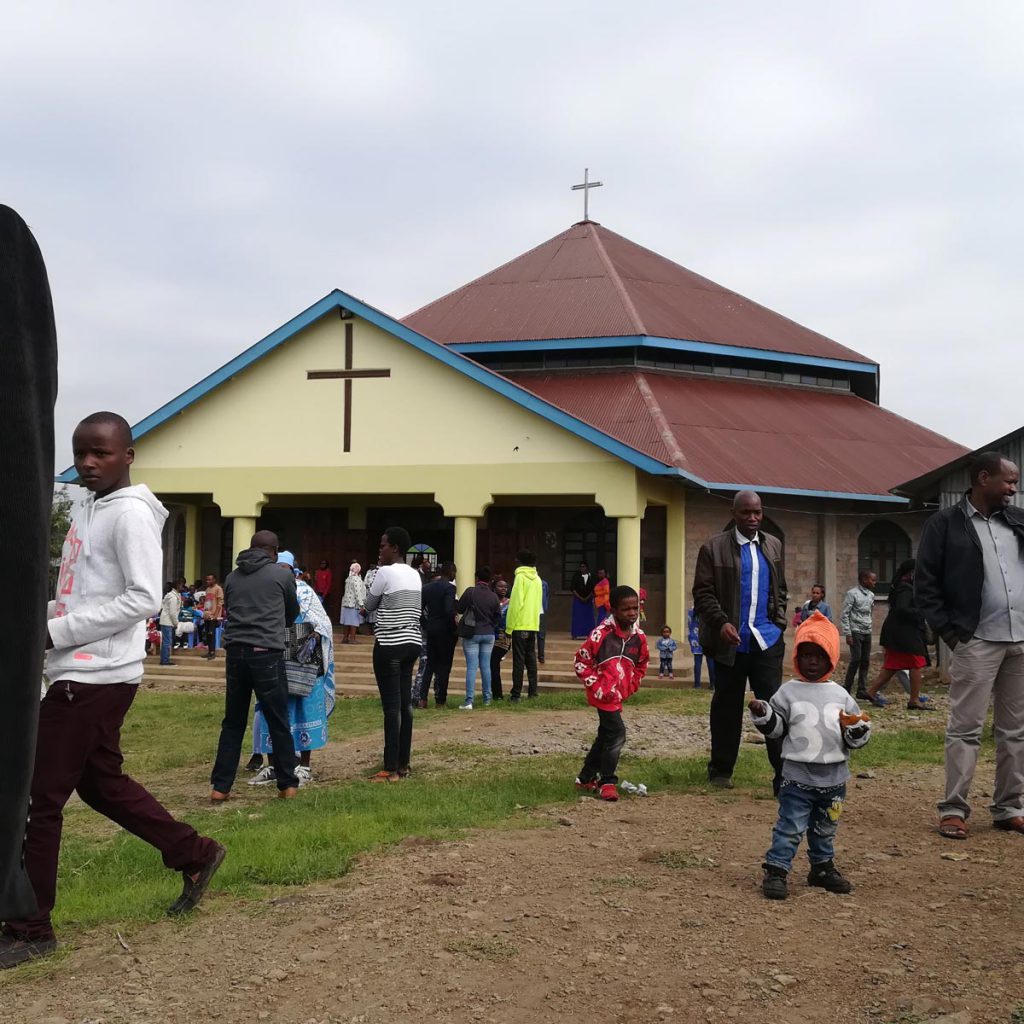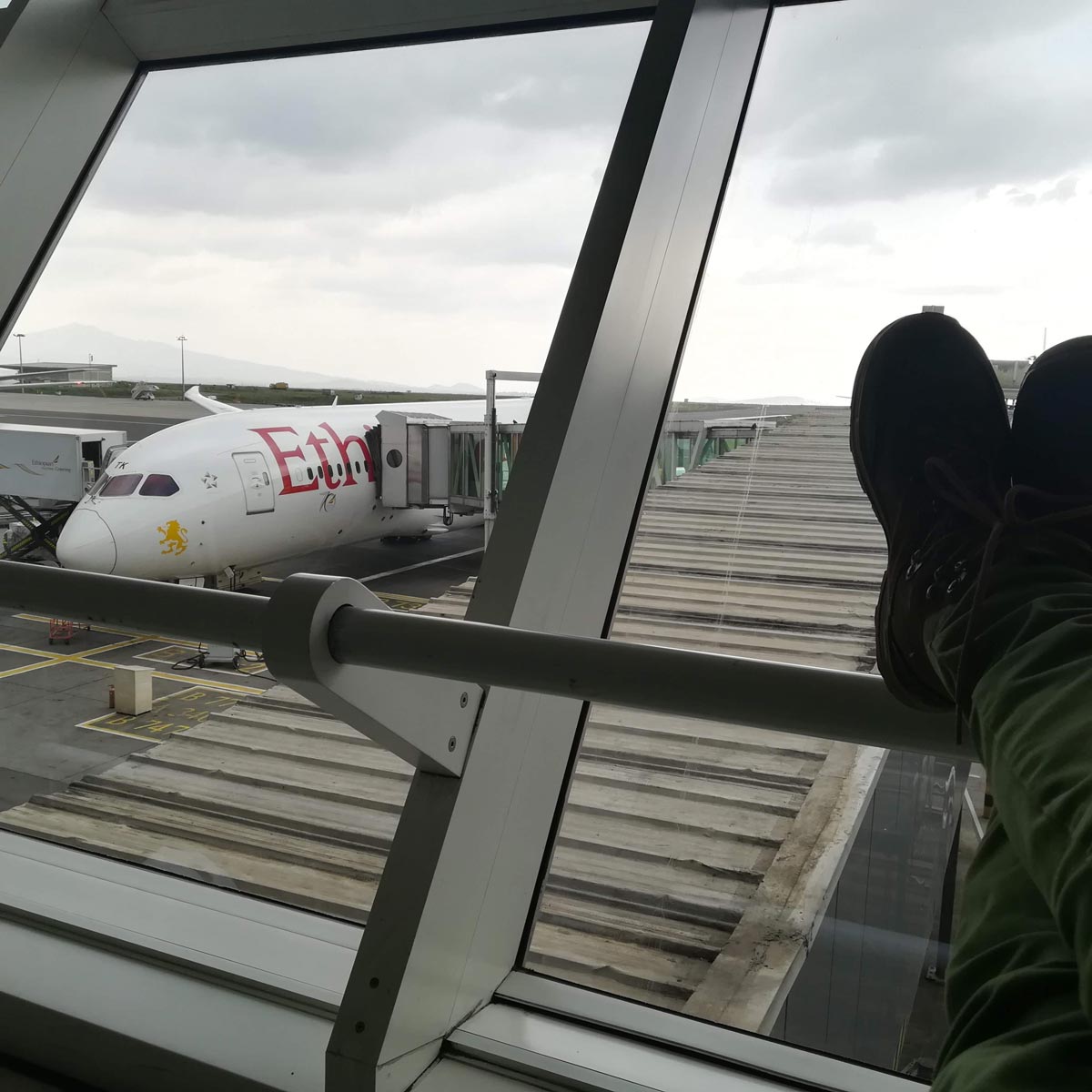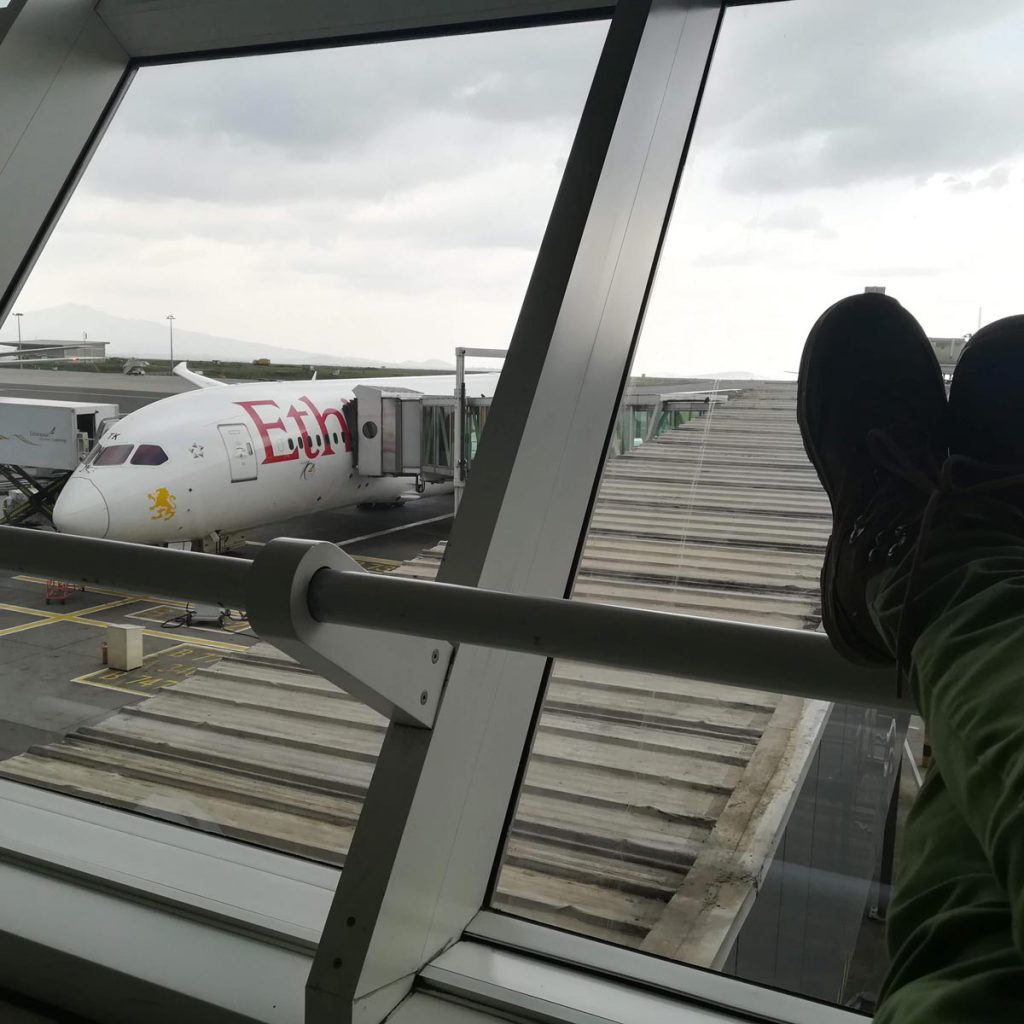In mission between Kenya and Ethiopia, our CLM Carolina Fiúza writes for the digital newsletter of the diocese of Leiria-Fátima (RED). We share the article with you.
I write to you as I am about to end my stay in Nairobi, Kenya. It was a tourist tip I really desired. For reasons beyond my control I had to exit Ethiopia, because the visa we as missionaries use to enter the country is a business visa valid for a month. For longer stays, such as my two years, upon reaching Ethiopia, during this month we must obtain a residence certificate. But my business visa expired and, in order not to remain in Ethiopia illegally, I had to step out into Kenya for a week, then come back and start again the residence process. The exigent bureaucracy makes it difficult for us to enter the country. Perhaps we can say that, generally speaking, the history of Ethiopia is marked by demanding regimes and imperialist systems that were very controlling. This the history that marks the population! Let it suffice to say that they lived under an emperor up to 1974 and it is one of the few African countries that were never colonized… Ethiopia has history, a great history!
Feelings of sadness and frustration added up the day I found out that I had to leave. Mostly, because I had already started to attend Amharic classes two weeks earlier. So I was going to miss a week of classes at the school, which is the door to enter into the culture, where they plant the sounds of the words in our heads, making a melody that I am beginning to love. It is not an easy language! I must admit that I feel the paradox between the enthusiasm of being like a little girl learning words by imitation (how to say colors, food, animal, etc.) and being doubtful. I feel that learning quickly this language will be a complicated affair.
It was not enough just to learn Amharic, a complicated language, that now I have to go to Kenya, miss classes, slow down my learning of the language! This way I do not know when I will be able to do what I came for – mission! – This is what I was thinking.
We fall into the temptation to think that mission is to do, to be successful, to plan everything at a practical level.
But let us not fool ourselves. I am fooling myself if I think that my true mission will start the day I will begin to live with the Gumuz and start a project with my group. We forget that it is not the great things that we see and touch that will produce much life. Not a few times it is in silence that we do the most.
I could tell you that it is easy to personally understand this paradox of waiting. This time spent learning the language makes me feel the lack of practical results. By I gratefully remember the words of my friend, CLM Cristina Sousa, who is currently in the Central African Republic, when she was saying with a play on words that she was leaving for the mission to graze (pastar). To graze, translates in our Portuguese saying that if you graze, you are doing nothing. But you can change it into P’astar, namely To Be. And reflecting on these wise words I tell myself, Carolina, you have already started! The same I say to all of you… for you, mission has already started from the moment when you came to be in the world as God’s creatures.
First you are surprised, then you understand. So goes the saying. Having accepted that the Lord wanted me to know a new and wonderful country like Kenya, now I can say that it was worth coming and it was for me a necessary visit. Nairobi is like a European or North American city – it’s green and organized, despite the heavy traffic, cars, people, but it does not have the heavy air we breath in Addis Ababa. Besides studying Amharic through the audios my classmates sent me when they had internet connection, I got to know the center of Nairobi with two Kenyans, members of the Parliament Mass choir, in which I took part at the invitation of Comboni Fr. Giuseppe Caramazza. It is also a business city, and it is enough for this to glimpse at the great Kenyatta Convention Center, a 28 story building, which is the venue for many assemblies, seminars, exhibits and international meetings.

Speaking of Mass, its red soil is already a symbol of its preparation and celebration. Many people gather very early to prepare what will be the real celebration. One of the choir members told me: When you go to attend a festival or a concert, you get ready, don’t you? Therefore, we must do the same, or better, for the Eucharist, because there is no greater feast. And here, this is the rule. This is a Eucharist where nobody just comes, but participates, from children to grownups. They all have something to contribute to the banquest with their voice, dancing, palms, etc.
A transversal reality, not only in Kenya, but also in Ethiopia is that at the Eucharist you do not look at your watch. It is not the kind that lasts 50 minutes or an hour, where often we see people busy with their watch, in the hope perhaps that the Feast may be close to the end. Not so! Here the Eucharist lasts about one and a half to two hours. The rhythm is given by happy songs and dances, a well defined rhythm that awakens the soul… and then I become aware that my own body is swaying, waking up. And suddenly, after we have been filled up by this banquet that gives us life, the feast in the Lord’s house is over and those who had been invited to it linger at the entrance to converse. I look at my watch, time just flew by!
And so it is. Time here flew! Just like the hugs I am sending to you, filled with good memories.
With love, Carolina de Jesús Fiúza, CLM
Online-Digital Newsletter of the Diocese of Leiria-Fátima no. 26, June 27 2019 (available at https://leiria-fatima.pt/noticias/uma-viagem-inesperada/ )





